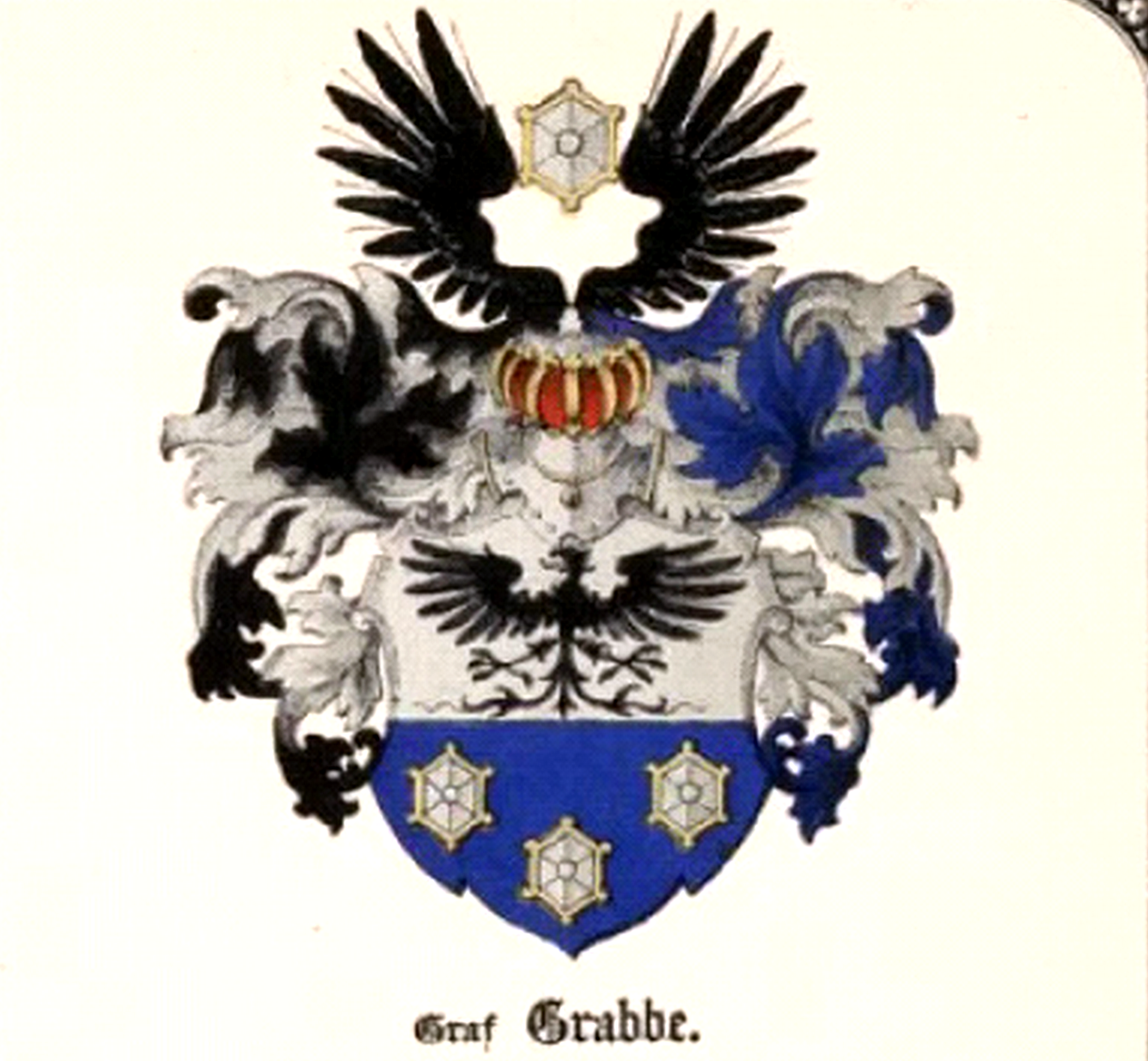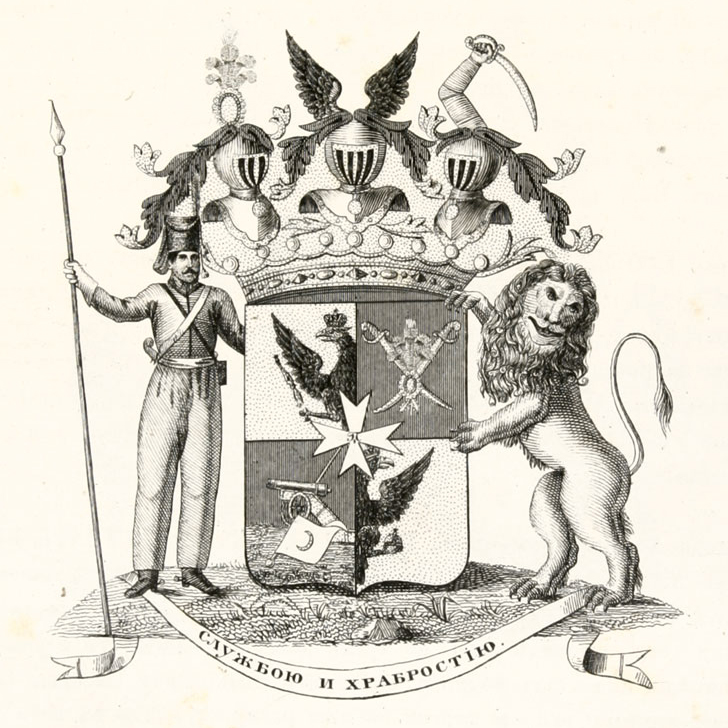|
Grabbe Family
Grabbe is a Don Cossacks noble family of a Finnish nobility origin, included in Russian. Counts of Russian Empire since 1856. Notable members * Paul Hrisztoforovicz Graf Grabbe (1789—1875) was a Russian Full General of Cavalry in time of Napoleonic Wars. * Alexander N. Graf Grabbe-Nikitin (1864—1947) was a Russian General of last Russian Tsar Nikolai II Nicholas II or Nikolai II Alexandrovich Romanov; spelled in pre-revolutionary script. ( 186817 July 1918), known in the Russian Orthodox Church as Saint Nicholas the Passion-Bearer,. was the last Emperor of Russia, King of Congress Pol ... Konvoi. External links Shumkov, A.A., Ryklis, I.G. List of noble families of the Don Cossacks in alphabetical order ''VIRD Publ House'', Sankt-Peterburg. 2000, {{in lang, ru Don Cossacks noble families Russian noble families Families of Finnish ancestry ... [...More Info...] [...Related Items...] OR: [Wikipedia] [Google] [Baidu] |
Don Cossacks Noble Families
Noble families of Don Cossacks in alphabetical order includes the old original Cossack noble families from Free Don, families which titles were granted by the Tsars of Moskovia and Russian Imperators after including of the territories of Free Don in to Russian Imperium. Most of the origin Don Cossacks families were a landowners that provoked Russian peasants to escape to Don and work on their lands,Peter Simon Pallas. Reise durch verschiedene Provinzen des rußischen Reichs. 1771-1801. like General Atamans of the Efremov family. Free territories of Don Cossacks known from the beginning of 14th century until the end of the 16th century when Moscow gained control of them. See also * List of Russian commanders in the Patriotic War of 1812 * Military Gallery of the Winter Palace * Russian nobility The Russian nobility (russian: дворянство ''dvoryanstvo'') originated in the 14th century. In 1914 it consisted of approximately 1,900,000 members (about 1.1% of the popul ... [...More Info...] [...Related Items...] OR: [Wikipedia] [Google] [Baidu] |
Finnish Nobility
The Finnish nobility ( fi, Aateli; sv, Adel) was historically a privileged class in Finland, deriving from its period as part of Sweden and the Russian Empire. Noble families and their descendants are still a part of Finnish republican society, but except for the titles themselves, no longer retain any specific or granted privileges. A majority of Finnish nobles have traditionally been Swedish-speakers using their titles mostly in Swedish. The Finnish nobility today has some 6,000 male and female members. The Finnish nobility is organized into classes according to a scheme introduced in the Act on the Organisation of the House of Nobility (Fi. ''Ritarihuonejärjestys'', Sw. ''Riddarhusordningen''). The ranks (compare with royal and noble ranks) granted were (''Swedish'' / ''Finnish''): * ''furste'' / ''ruhtinas'' (corresponding approximately to crowned or Sovereign Prince in the German sense. Compare Charles, crowned Prince of Wales and Albert II, Sovereign Prince of Monaco) * ... [...More Info...] [...Related Items...] OR: [Wikipedia] [Google] [Baidu] |
Russian Nobility
The Russian nobility (russian: дворянство ''dvoryanstvo'') originated in the 14th century. In 1914 it consisted of approximately 1,900,000 members (about 1.1% of the population) in the Russian Empire. Up until the February Revolution of 1917, the noble estates staffed most of the Russian government and possessed a Gentry assembly. The Russian word for nobility, ''dvoryanstvo'' (), derives from Slavonic ''dvor'' (двор), meaning the court of a prince or duke (''kniaz''), and later, of the tsar or emperor. Here, ''dvor'' originally referred to servants at the estate of an aristocrat. In the late 16th and early 17th centuries, the system of hierarchy was a system of seniority known as ''mestnichestvo''. The word ''dvoryane'' described the highest rank of gentry, who performed duties at the royal court, lived in it (''Moskovskie zhiltsy''), or were candidates to it, as for many boyar scions (''dvorovye deti boyarskie'', ''vybornye deti boyarskie''). A nobleman is call ... [...More Info...] [...Related Items...] OR: [Wikipedia] [Google] [Baidu] |
Count
Count (feminine: countess) is a historical title of nobility in certain European countries, varying in relative status, generally of middling rank in the hierarchy of nobility. Pine, L. G. ''Titles: How the King Became His Majesty''. New York: Barnes & Noble, 1992. p. 73. . The etymologically related English term "county" denoted the territories associated with the countship. Definition The word ''count'' came into English from the French ''comte'', itself from Latin ''comes''—in its accusative ''comitem''—meaning “companion”, and later “companion of the emperor, delegate of the emperor”. The adjective form of the word is "comital". The British and Irish equivalent is an earl (whose wife is a "countess", for lack of an English term). In the late Roman Empire, the Latin title ''comes'' denoted the high rank of various courtiers and provincial officials, either military or administrative: before Anthemius became emperor in the West in 467, he was a military ''comes ... [...More Info...] [...Related Items...] OR: [Wikipedia] [Google] [Baidu] |
Russian Empire
The Russian Empire was an empire and the final period of the Russian monarchy from 1721 to 1917, ruling across large parts of Eurasia. It succeeded the Tsardom of Russia following the Treaty of Nystad, which ended the Great Northern War. The rise of the Russian Empire coincided with the decline of neighbouring rival powers: the Swedish Empire, the Polish–Lithuanian Commonwealth, Qajar Iran, the Ottoman Empire, and Qing China. It also held colonies in North America between 1799 and 1867. Covering an area of approximately , it remains the third-largest empire in history, surpassed only by the British Empire and the Mongol Empire; it ruled over a population of 125.6 million people per the 1897 Russian census, which was the only census carried out during the entire imperial period. Owing to its geographic extent across three continents at its peak, it featured great ethnic, linguistic, religious, and economic diversity. From the 10th–17th centuries, the land ... [...More Info...] [...Related Items...] OR: [Wikipedia] [Google] [Baidu] |
Paul Hrisztoforovicz Graf Grabbe
Paul may refer to: *Paul (given name), a given name (includes a list of people with that name) * Paul (surname), a list of people People Christianity *Paul the Apostle (AD c.5–c.64/65), also known as Saul of Tarsus or Saint Paul, early Christian missionary and writer * Pope Paul (other), multiple Popes of the Roman Catholic Church * Saint Paul (other), multiple other people and locations named "Saint Paul" Roman and Byzantine empire * Lucius Aemilius Paullus Macedonicus (c. 229 BC – 160 BC), Roman general * Julius Paulus Prudentissimus (), Roman jurist * Paulus Catena (died 362), Roman notary *Paulus Alexandrinus (4th century), Hellenistic astrologer * Paul of Aegina or Paulus Aegineta (625–690), Greek surgeon Royals *Paul I of Russia (1754–1801), Tsar of Russia *Paul of Greece (1901–1964), King of Greece Other people *Paul the Deacon or Paulus Diaconus (c. 720 – c. 799), Italian Benedictine monk *Paul (father of Maurice), the father of Maurice ... [...More Info...] [...Related Items...] OR: [Wikipedia] [Google] [Baidu] |
Russians
, native_name_lang = ru , image = , caption = , population = , popplace = 118 million Russians in the Russian Federation (2002 ''Winkler Prins'' estimate) , region1 = , pop1 = approx. 7,500,000 (including Russian Jews and Russian Germans) , ref1 = , region2 = , pop2 = 7,170,000 (2018) ''including Crimea'' , ref2 = , region3 = , pop3 = 3,512,925 (2020) , ref3 = , region4 = , pop4 = 3,072,756 (2009)(including Russian Jews and Russian Germans) , ref4 = , region5 = , pop5 = 1,800,000 (2010)(Russian ancestry and Russian Germans and Jews) , ref5 = 35,000 (2018)(born in Russia) , region6 = , pop6 = 938,500 (2011)(including Russian Jews) , ref6 = , region7 = , pop7 = 809,530 (2019) , ref7 ... [...More Info...] [...Related Items...] OR: [Wikipedia] [Google] [Baidu] |
Full General
A general officer is an officer of high rank in the armies, and in some nations' air forces, space forces, and marines or naval infantry. In some usages the term "general officer" refers to a rank above colonel."general, adj. and n.". OED Online. March 2021. Oxford University Press. https://www.oed.com/view/Entry/77489?rskey=dCKrg4&result=1 (accessed May 11, 2021) The term ''general'' is used in two ways: as the generic title for all grades of general officer and as a specific rank. It originates in the 16th century, as a shortening of ''captain general'', which rank was taken from Middle French ''capitaine général''. The adjective ''general'' had been affixed to officer designations since the late medieval period to indicate relative superiority or an extended jurisdiction. Today, the title of ''general'' is known in some countries as a four-star rank. However, different countries use different systems of stars or other insignia for senior ranks. It has a NATO rank scal ... [...More Info...] [...Related Items...] OR: [Wikipedia] [Google] [Baidu] |
Alexander N
Alexander is a male given name. The most prominent bearer of the name is Alexander the Great, the king of the Ancient Greek kingdom of Macedonia who created one of the largest empires in ancient history. Variants listed here are Aleksandar, Aleksander and Aleksandr. Related names and diminutives include Iskandar, Alec, Alek, Alex, Alexandre, Aleks, Aleksa and Sander; feminine forms include Alexandra, Alexandria, and Sasha. Etymology The name ''Alexander'' originates from the (; 'defending men' or 'protector of men'). It is a compound of the verb (; 'to ward off, avert, defend') and the noun (, genitive: , ; meaning 'man'). It is an example of the widespread motif of Greek names expressing "battle-prowess", in this case the ability to withstand or push back an enemy battle line. The earliest attested form of the name, is the Mycenaean Greek feminine anthroponym , , (/ Alexandra/), written in the Linear B syllabic script. Alaksandu, alternatively called ''Alakasandu ... [...More Info...] [...Related Items...] OR: [Wikipedia] [Google] [Baidu] |
General
A general officer is an Officer (armed forces), officer of highest military ranks, high rank in the army, armies, and in some nations' air forces, space forces, and marines or naval infantry. In some usages the term "general officer" refers to a rank above colonel."general, adj. and n.". OED Online. March 2021. Oxford University Press. https://www.oed.com/view/Entry/77489?rskey=dCKrg4&result=1 (accessed May 11, 2021) The term ''general'' is used in two ways: as the generic title for all grades of general officer and as a specific rank. It originates in the Tudor period, 16th century, as a shortening of ''captain general'', which rank was taken from Middle French ''capitaine général''. The adjective ''general'' had been affixed to officer designations since the late Middle Ages, late medieval period to indicate relative superiority or an extended jurisdiction. Today, the title of ''general'' is known in some countries as a four-star rank. However, different countries use di ... [...More Info...] [...Related Items...] OR: [Wikipedia] [Google] [Baidu] |
Nicholas II
Nicholas II or Nikolai II Alexandrovich Romanov; spelled in pre-revolutionary script. ( 186817 July 1918), known in the Russian Orthodox Church as Saint Nicholas the Passion-Bearer,. was the last Emperor of Russia, King of Congress Poland and Grand Duke of Finland, ruling from 1 November 1894 until his abdication on 15 March 1917. During his reign, Nicholas gave support to the economic and political reforms promoted by his prime ministers, Sergei Witte and Pyotr Stolypin. He advocated modernization based on foreign loans and close ties with France, but resisted giving the new parliament (the Duma) major roles. Ultimately, progress was undermined by Nicholas's commitment to autocratic rule, strong aristocratic opposition and defeats sustained by the Russian military in the Russo-Japanese War and World War I. By March 1917, public support for Nicholas had collapsed and he was forced to abdicate the throne, thereby ending the Romanov dynasty's 304-year rule of Russia (16 ... [...More Info...] [...Related Items...] OR: [Wikipedia] [Google] [Baidu] |





